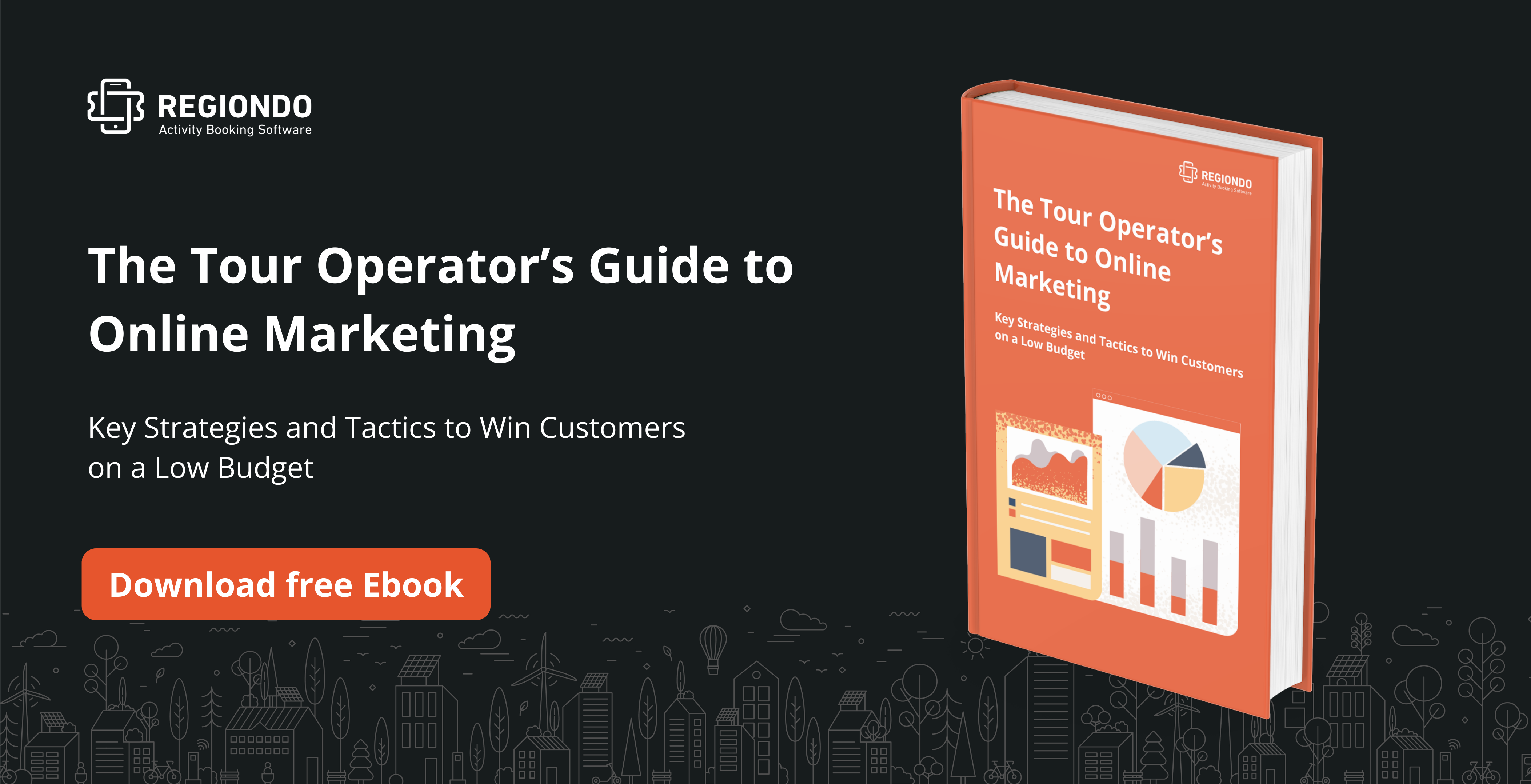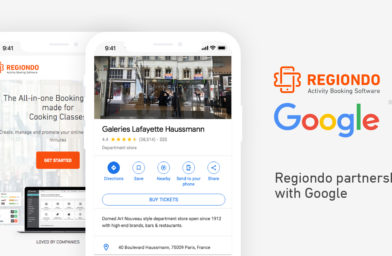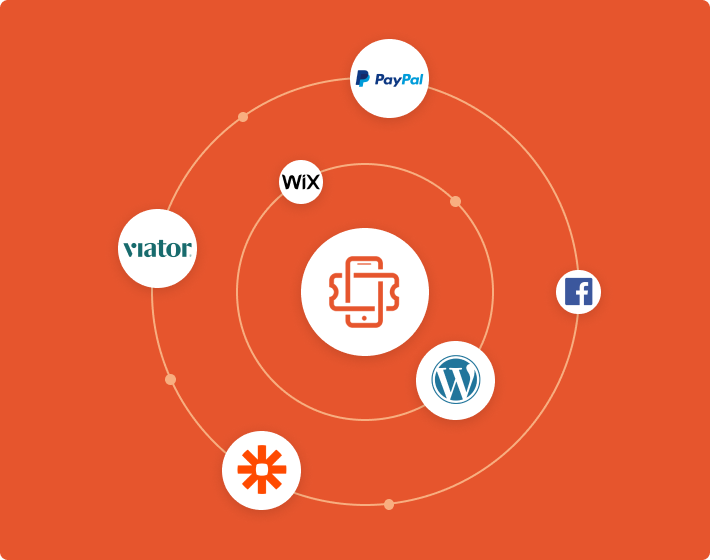Finding and effectively targeting the right keywords for travel and tourism is the basis for ranking your tours or activities website and scoring higher web traffic.
This is the reason why keyword research is such a vital step in setting up and optimizing your website.
Keyword research is also necessary because tourism is a highly competitive industry, therefore, one of the best strategies to beat your competition is understanding what travelers are searching for and offering the solution through relevant content on your site.
In this article, we’ll address several aspects concerning keyword research, including the definition, the importance of keyword research for tours and activities operators, and actionable tips on how to effectively do keyword research.
After this, we believe you’ll be well equipped with practical steps to implement in your business. So without further ado, let’s begin.
What Is Keyword Research?
Keyword research is a fundamental process in Search Engine Optimization (SEO). It involves identifying the common words, terms, or phrases that your potential customers enter into search engines like Google when looking for information, services, or products in your industry.
For example, a traveler on holiday in Scotland looking for fun activities to do may search for “things to do in Scotland”, or “things to do in Edinburgh.”
But keyword research does not end at discovering the relevant keywords or keyphrases. This step is followed by creating targeted content on your tour website that’s relevant to both users and search engines. By doing so, Google can identify your webpage as relevant for a particular search query and rank you on the results page where travelers can find you.
Do you know that 75% of all internet searchers don’t scroll past page one of SERPs (Search Engine Results Page)? That’s why it’s so important to rank your website.

This leads us to our next point…
Why Is Keyword Research Important?
Keyword research is not something you do once and forget about. It’s a process every tour and activities provider (or any other business) should perform regularly.
Why?
There are several reasons why keyword research is so important. For example, keyword research:
- Helps you learn your potential customers’ language by answering questions like:
- What are your potential clients searching for?
- What words are they using as opposed to the words your business is using?
- What questions do these people ask concerning travel?
- When are they searching for these terms? (i.e is there a seasonal trend?)
2. Enables you to understand search intent.
- Why are people asking these questions?
- Is it a transactional, navigational, or informational query?
3. Boosts ranking on Google.
Creating content using relevant keywords is not only meant to serve users/ potential customers. It also relays information to Google concerning what your website is about hence determining where to rank you on the results page (SERP).
Among other factors, Google’s algorithm checks for keywords used in your web pages and how relevant your content is in answering the search query.
4. Drives organic traffic to your website.
Proper keyword research and creating great content around those keywords will make your website relevant and useful to users who will, as a result, turn to you for answers to their questions. This means more traffic for your website and more potential sales for your company.
5. Helps you assess your website’s keyword health.
- How is your site ranking for specific keywords?
- Which keywords are easier to rank for?
- What keywords are your competitors ranking for?
All in all, regularly doing keyword research for your tour or activities website will help you get more eyeballs on your site and potentially convert that traffic into sales.
5 Practical Tips To Do Keyword Research
1. Map out Your Target Audience
Before even setting up a tours or activities website and creating content, you need to know who it is you’re selling to (as well as who you aren’t selling to). You need to identify the kind of person that’s most likely to become your customer… your ideal client.
This is what we mean when we talk about target audience mapping.
Your target audience is a group of people in your target market that are the best recipient of the particular product or service you offer. And in order to narrow down to this specific audience, you’ll need to conduct market research and analyze your customer persona. Answer the following questions to map out your ideal buyer:
- What age group are they in?
- What do they do? (their career or job)
- Where do they live?
- What do they want?
- What are their challenges?
- On which platforms are they mostly found?
The information you collect from this analysis will enable you to visualize the person you are targeting through your content. And from that, you can create a more effective content marketing strategy for your tour website.
So how does target audience mapping fit into keyword research?
Knowing who your target customer is will help you know the kind of language they would use in search and this will advise your choice of keywords.
2. Search for Topics on Social Media
Now that you know who your ideal customer is, the next step is finding out what topics interest them, especially in relation to your niche (in this case, travel and tourism). And what better place to dig for this information than on social media.
According to Statista’s January 2021 statistics, 4.2 billion people worldwide are active social media users. That’s more than 50% of the global population, and the number is growing daily.

Find out the latest travel trends on Facebook, Instagram, and Twitter by researching the popular travel hashtags most people are using. This will give you an idea of what travelers are interested in at the moment.
Other great social media platforms you can use to discover your audience’s interests are Reddit, Quora, and WhatsApp. Review sites can also give you an insight into what’s trending in the travel industry.
You can incorporate the topics you come up with in your web content or even market your offering in line with these trends. But as we are in the process of doing keyword research, the next tip is your next best step.
3. Find Keywords Using a Research Tool
This step involves finding the specific keywords to target in your web content. A good place to begin is using the travelers’ interests you discovered in the previous step.
Here’s an example:
Let’s say, from your research on social media, you discovered the latest tourism trend is solo traveling. So, say your tour company offers guided walking tours in Rome, you can consider finding different keyword variations related to “tours for solo travelers” or “solo traveling in Rome.” That way, the solo travelers are likely to find your content when searching for things to do when solo traveling in Rome and can potentially book with you.
Another way to come up with keywords is starting with a foundation/seed keyword. The seed word can be e.g your niche or the service you offer. This seed word can then form the basing for searching for relevant keywords for your tour business.
Using the example of the tour company offering guided walking tours in Rome, your possible seed keywords can be:
- “city tours”
- “walking tours”
- “Rome tours”
- “Things to do in Rome”
Next, get data on these keywords, variations of these terms, and the words travelers are using when looking for such services.
This is where keyword research tools come in handy.
These tools will give you very useful information on different keyword metrics such as estimated monthly search volume, keyword difficulty, clicks, and cost per click (CPC).
Here’s a sample of the keyword metrics provided by Ubersuggest for the keyphrase “Rome tours”:

Apart from the metrics on the terms you search for, keyword research tools also give keyword ideas related to the one you entered.

With these suggestions, you can analyze your options and choose the actual keywords you’d like to target in your web pages or blog posts.
There are a number of keyword research tools on the internet today. Some are free of charge including:
- Google Search Console
- Ubersuggest
- Google keyword planner
- Keyword Surfer
- Keyword Generator
- Answer the Public
For a more advanced marketing research, you can go for the paid tools which include:
- Ahref Keyword Explorer
- SEMrush
- KWFinder
- Ubersuggest
- Soovle
After gathering a number of keywords, analyze the data and select the most ideal keywords for your activities or tour company. The secret here is to go for keywords with a good search volume but that are not overly competitive. The most ideal are the long-tail keywords.
At this point, you probably have a rather long list of keywords. So what do you do with all these terms? Should you start creating different posts targeting each of them? Yes and no! The answer to that question will depend on the next step.
4. Group Keywords by Topic
Keyword grouping (a.k.a keyword clustering) is one effective SEO strategy your tour or activities website can greatly benefit from.
It simply refers to compiling into groups or clusters the various keywords that are closely related to each other. Once grouped together using internal linking, you then distribute these keywords throughout your webpage in such a manner as to optimize it for SEO and drive more traffic.
This means that the keywords clustered into one group or under one topic can all be sprinkled in the same webpage. You can then create a different post/ webpage containing keywords that fall within another group.
Alternatively, you can group your keywords into a number of main topics then break them down again into subgroups. The subgroups can then be used in creating individual posts on your tour’s website. Here’s an image to help you visualize that:

With keyword grouping, one post or page on your website can actually rank for several keywords. This means appearing on different searches and therefore increasing your chances of driving more traffic to your website.
5. Map Keywords to Site Structure/Pages
After keyword clustering, the final tip we’re going to look at is keyword mapping. This is perhaps the last step before creating content and actually putting your keywords into use. So, let’s begin with what mapping is.
To put it very simply, keyword mapping is the process of allocating or assigning specific keyword clusters to individual pages on your website.
In essence, keyword mapping will form a framework for your collection of keywords that will mirror your website’s structure.
The map you come up with will help you discover what content to build, where to optimize, and where to add new pages in order to drive more traffic. You will come up with a clear picture of what keywords you are targeting in your:
- Home page
- Product pages
- Blog posts
- Booking page
- Various landing pages
As a result, this process is great for tours and activities operators just starting out and setting up their website. But even if you already have your site up and running, keyword mapping should be done on a regular basis just like all the other steps in keyword research.
Conclusion
There you have it. The actionable tips to do keyword research include:
- Target audience mapping
- Using social media to search for topics
- Finding keywords using a research tool
- Keyword clustering
- Keyword mapping
Ultimately, keyword research for tours and activities involves figuring out travelers’ interests, how they use search engines to look for answers, and how you can address those queries using content on your website and therefore drawing in traffic which can convert into sales for your tours or activities business.






